
Many people will tell you knocking sounds are indicative of the big end going. Other screeches and scrapes can tell you about the state of your brakes or the transmission. However, smells are often an underrated method of homing in on car problems that can allow you to suss out the fact your car has a problem, before it becomes a serious issue.
Interestingly enough the mind has no olfactory memory. We can recreate sounds, tastes and even visions in our brains. But not smells. This means that smell can be a powerful, unmissable indicator of problems, and there’s usually no arguing with a whiff in the air. Especially if other passengers can detect it too. So what are the odours you need to be aware of – and more importantly, what do they mean?
Table of contents:
- Maple Syrup
- Rotten Eggs (sulphur)
- Burnt Oil
- Musty Dampness
- Burnt Carpet
- Burnt Rubber
- Petrol
- Exhaust Fumes
- And Finally
Maple Syrup
You’re likely to detect this odour when the car is running or has been recently turned off.
Cause: The most likely culprit is glycol in the coolant system. This could indicate that you have a leaky radiator or radiator hose, problems with the cylinder head, intake manifold gasket, or a leak within the vehicle’s heating system. Is the smell strongest within the interior of the car? If so, then an issue with the heater core could be the origins of the smell.
If the coolant system is failing, then this is a serious issue that could lead to knock on effects in the engine from overheating. It could even be the case that water vapour mixed with antifreeze is invading your car’s interior as steam, meaning you’re breathing in glycol, which can lead to liver damage.
What to do: get your car towed to the nearest mechanic or service centre. If you are experiencing problems with the coolant system, then using the engine could result in more damage.
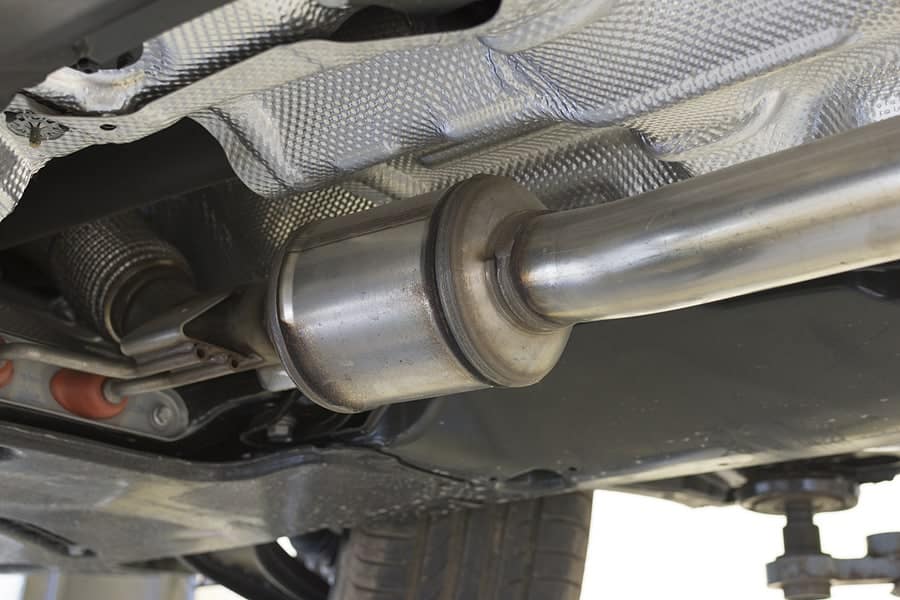
Rotten Eggs (sulphur)
You’re most likely to smell this odour inside the vehicle’s cabin
Cause: Usually down to a malfunction in the catalytic converter, fuel filters or fuel pressure sensors, leading to a sulphur gas leak into your car’s interior due to an imbalance in the car’s air to fuel ratio. Also old transmission fluid is known to evolve this gas. Sulphur is toxic to humans, so if you can detect this smell, then get the car looked at immediately.
What to do: if you’re able to replace the transmission fluid then this may solve the problem. If the problem persists, then it’s time to get the vehicle to the mechanic.
Burnt Paper
You’ll notice this smell when behind the wheel, with the odour becoming more prominent when you change gears.
Cause: this could be a sign that the clutch facing is burning off as the clutch slips. Have you been riding the clutch? Repeated stepping on the pedal can cause excessive friction, which in turn raises the temperature enough to ignite the paper based clutch facings. Alternatively if you’re going into the autumn months, you may find leaves are burning in the engine compartment.
What to do: check the engine compartment to ensure that it’s free of all combustible materials. If the problem persists, then we’d recommend a trip to the mechanic, to have the clutch checked out.
Burnt Oil
You could notice this smell after an oil change or when driving the car.
Cause: this smell will generally be the result of an oil leak. Locating it may be more difficult. If it occurs after an oil change, you could be looking at an improperly fitted oil cap or filter. More serious issues could include leaks from a bad gasket, a seal rupturing, leading to oil dripping on the timing belt, or issues with the crankshaft seal leaking oil into the engine which is then heating up and burning.
What to do: check the cap and filter for leaks. If everything appears to be correctly in place, then you’re looking at a leak somewhere deeper within the engine. A poorly lubricated engine is incredibly susceptible to damage, so take it down to the mechanic without fail.
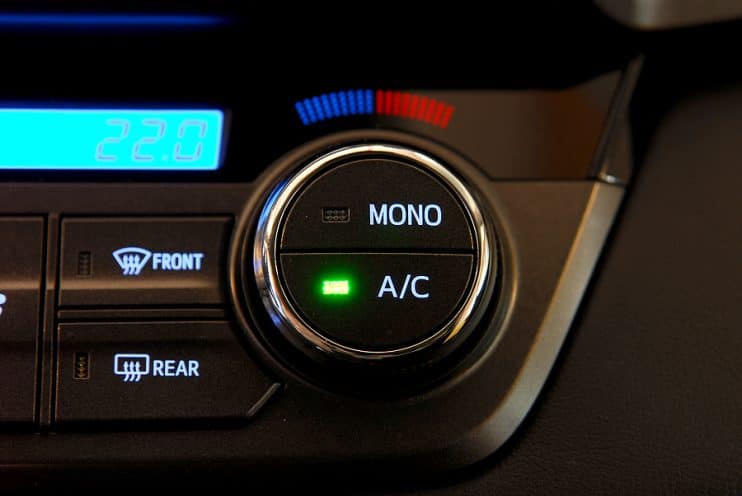
Musty Dampness
You’ll detect a musty, dirty, organic odour when you turn on the air conditioning unit.
Causes: if your car is a little older, then it could well be some kind of mould or mildew growing inside the air conditioning evaporator. This is more than an unpleasant odour however, as the spores from the fungus can exacerbate lung problems such as asthma.
What to do: take the car out. Drive it around with the air conditioning turned off, the fan on and the vents open. Hopefully this should dry out the system, and get rid of any unwanted mould. If this doesn’t cure the problem, then take the car to a service centre.
Burnt Carpet
You’re likely to catch a whiff of this smell after extensive use of the brakes or handbrake. Especially if you’ve kept your foot on the brake
Causes: the culprit could be a dragging brake pad catching on the disc, overheating pads, or a failure in the pads retraction system. Also even though it might sound obvious, check that you have fully disengaged the handbrake, as this can have a similar effect.
What to do: check the temperature of the brakes. The hottest one is likely to be the cause of the unpleasant odour. If you can change the part yourself, then go ahead. Otherwise get down to the mechanics or service centre, where you can have the brakes and pads checked out for problems by a professional.
Burnt Rubber
When you’re out on the road, the smell of burning rubber will become more prominent in the car.
Causes: the most likely cause of the smell will be some kind of problem with a rubber hose or belt in the car’s engine. Often this might be from a worn out or damaged drive belt. If the rubber becomes loose, and makes contact with hot engine parts, then it can melt and give off a burning smell. However, there is a chance that it could come from an oil or fluid leak. There’s also a small chance it could be coming from an overheated clutch plate.
What to do: check all the hoses and belts in your car to ensure they are properly secured in place and appropriately tightened. If you do find any problems, then replace and maintain the part. If you suspect a leak, then there are several tests you can do to identify the problem.

Petrol
You’ll often smell petrol when you’re starting your vehicle, as a little will remain unburned due to the engine operating at subnormal efficiency. However, if you’re still sniffing the odour of petrol when the car has been running for a while, this could spell problems.
Causes: the smell could be coming from a loose petrol cap or a fault, such as leak or clogging, within the evaporative emissions control system, which is designed to control the fuel vapours and push them back into the engine. Alternatively, there could be a leak within the actual fuel distribution system, like a cracked or broken fuel line.
What to do: if you can smell petrol, then it’s advisable to stop the car immediately and seek mechanical assistance. Petrol is highly flammable, and a leak could result in the car catching fire.
Exhaust Fumes
You’ll smell the dirty vapours coming off your exhaust whilst in the cabin of your vehicle.
Causes: usually this will be down to broken or damaged seals on the windows, allowing exhaust fumes to enter the cabin. It could also be caused by a leak in the exhaust system.
What to do: the fumes contain carbon monoxide, which is a deadly, odourless gas within the range of gasses produced by the exhaust. Take your car to the mechanics to check you do not have a leak in the exhaust system.
And Finally
As with all kinds of faults, it’s always best to act quickly when you suspect a problem with your car. It could turn out to be nothing in a best case scenario, but if you ignore it and there is an issue, this could have knock on effects in the engine. Always remain vigilant around your car and use every tool (sounds, sights and smells) to keep your vehicle in check.

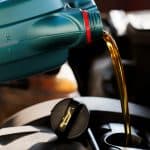




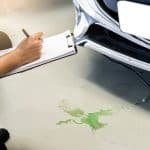



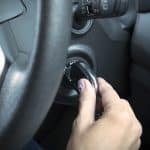


.png)